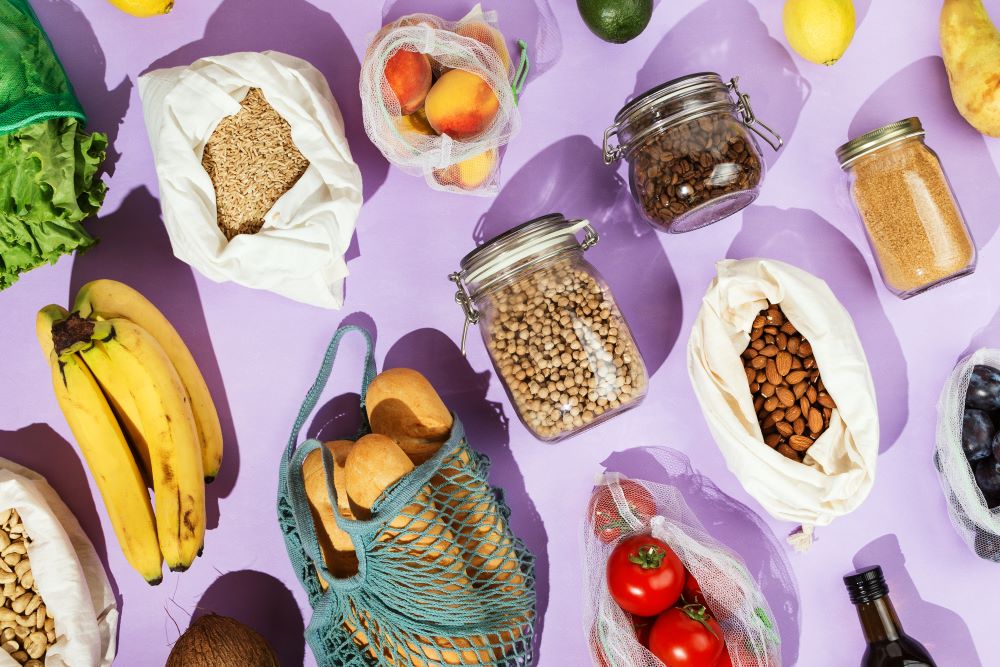
The IOE&IT Daily Update brings together international trade news from the food and drink sector, along with insight from the Institute of International Trade and Export’s (IOE&IT) events.
Special interest group
Yesterday marked the second meeting of IOE&IT’s food and drink special interest group, bringing together expert insight and industry networking opportunities within the sector.
The focus of this meeting was on ensuring supply chain resilience and building a strong distributor network.
The session featured a talk from the UK Food & Drink Exporters Association’s director of export services Nicola Thomas, whose experience includes 20 years at the “coal face” of food and drink exports, building international sales and marketing network and consultancy work for management teams, offering support as they expand overseas.
She compared her early career experiences at two different companies: one approached potential distributors with a “painstaking” caution, replete with through due diligence and internal business cases, while the other boasted over 30 export markets despite many partners being unprofitable. Thomas praised the cautious approach as yielding better results.
Thomas outlined that, in order to succeed, a deliberate approach to selecting the most appropriate partners for the company’s product works better compared to reactively pursuing those that simply showed an interest.
“Companies in this position rarely manage to get sustainable traction or build a long-term, profitable export business.”
BTOM countdown
As we move towards the end of this year, we also close in on the introduction of the Border Target Operating Model (BTOM), the UK’s risk-based, data-driven approach to import checks.
With new requirements such as health certificate requirements entering into effect for medium-risk products from 31 January 2023, those with EU suppliers will need to make sure they’re prepared for the changes.
When asked whether they feel prepared for the changes, 38% of attendees said they believed they were ‘somewhat prepared’, while 16% consider themselves ‘unprepared’ or ‘not at all prepared’.
IOE&IT trade and customs specialist Laura Williams said that what businesses ultimately need is “clarity”, which has been lacking throughout the several delayed releases of the BTOM timeline.
“Lots of companies don’t know exactly what they need to do because they're not sure where their product will sit within the categories,” she said.
However, she also sought to reassure businesses, adding that many she’s spoken to over the past few months that feel ‘somewhat prepared’ are “actually in a better position than they thought they were”.
Green transport progress
As COP28 kicks off tomorrow (30 November), it’s an opportunity to reflect on sustainability efforts in the food and drink industry.
One area that’s taken the spotlight in recent months is the use of environmentally friendly vehicles in supply chains. While electronic cars grab the headlines, larger green vehicles integral to the transportation of goods are often overlooked.
Food Manufacture reports that Diageo, the company responsible for over 200 brands including Tanqueray, Guinness and Smirnoff, has embarked on a hydrogenated vegetable oil (HVO) fuel trial with freight management firm Zeus.
Zeus will deploy 50 trucks per week across 14 UK transport routes. If successful and expanded to Europe in 2024, Zeus projects HVO could eventually prevent Diageo from putting out 1.8mkg of carbon dioxide emissions each year.
From green fuels to (electronic vehicles) EVs Last month, McDonalds partnered with Agrial Fresh Produce, to put its first electronic heavy goods vehicle (HGV) on the road.
This follows the post-pandemic rollout of electric charging ports at McDonalds’ restaurants across the country, enabling the use of EVs an contributing to the green recovery.
The move followed research the fast food giant commissioned itself, which found that over half of respondents cited lack of chargers as the biggest barrier to EV adoption.
Choc crisis
As sugar and cocoa prices continue to rise, the cost of everyone’s favourite Christmas commodity is set to rise with it.
The FT reports that as a result of El Niño weather hitting west Africa, a record-setting supply deficit of 350,000 tonnes was recorded.
As input costs go up, demand weakens, which is expected to spell trouble for Barry Callebaut, the world’s biggest manufacturer of chocolate and cocoa products, and an important business supplier.
The Swiss giant is projected to experience flat or falling sales volumes in Q4, a trend predicted for fellow producer Lindt & Sprüngliare.



